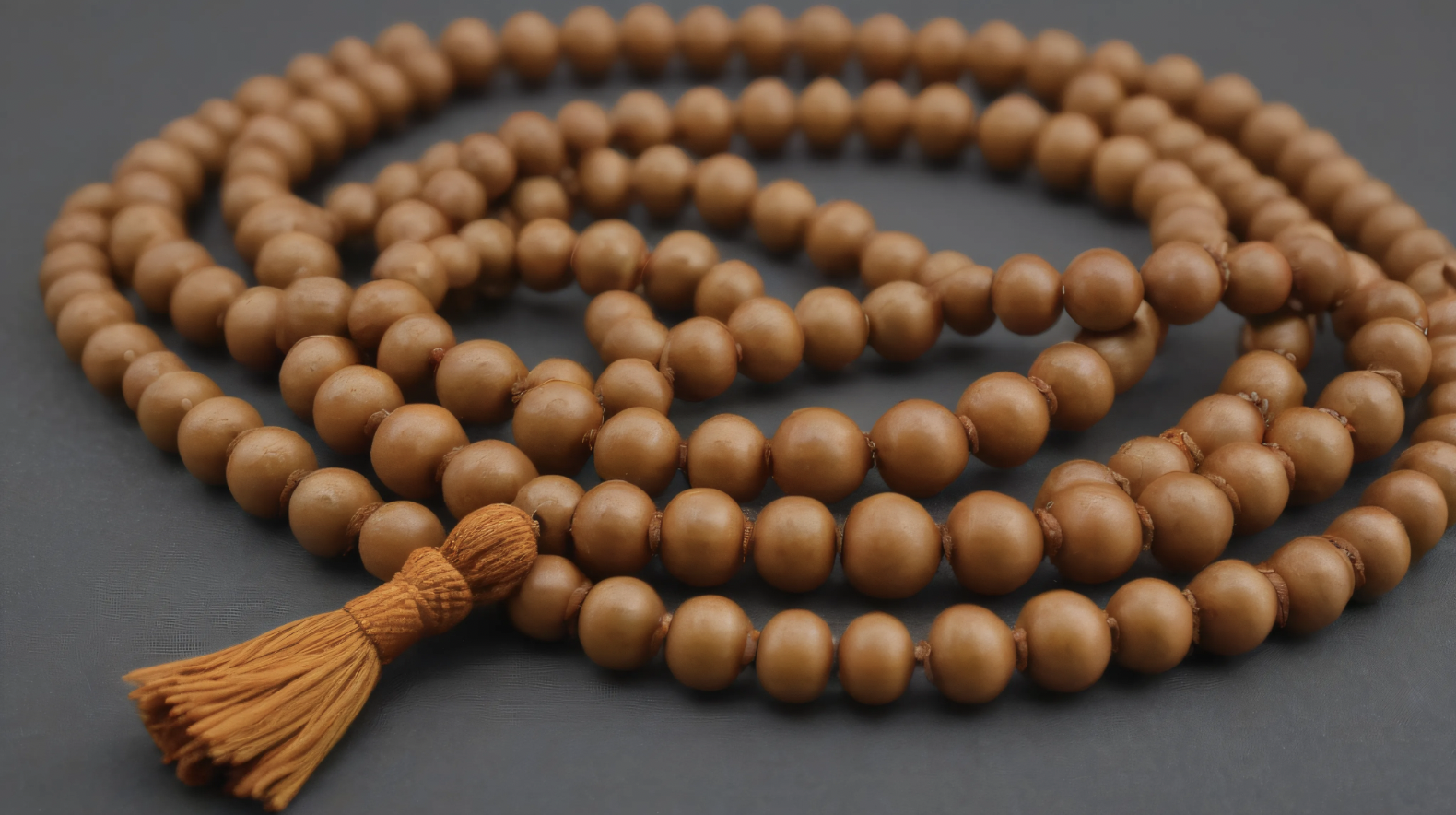Conversation Between Two Friends – Part Two

“Can you not attain Bhagavān by calling out to Him in your mind?” This statement of yours clearly reveals what is in your heart. It makes it clear that you are either embarrassed to accept practices favourable to bhakti or detest them, which is why you are resorting to guile. This is conveying your lack of intensity, your indifference, in attaining Bhagavān. Otherwise, you are thinking that attaining the formless brahma or inactive Paramātmā by means of jñāna, yoga, or other practices is attainment of Bhagavān. First of all, the favourable practices [of bhakti] are to obtain the power to call out to Bhagavān. These purify the sādhaka’s mind by remembrance of Bhagavān. It is not possible to remember Bhagavān with an impure or maligned mind. “Mana duṣṭa haile nahe kṛṣṇera smaraṇa – If the mind is contaminated, one cannot remember Kṛṣṇa.” (Caitanya-caritāmṛta, Ādi, 12.50) Śrīmad-Bhāgavatam says:
bhakti-yogena manasi samyak praṇihite ’male |
apaśyat puruṣaṁ pūrṇaṁ māyāñca tad-apāśrayam ||
Once the mind is properly purified by bhakti-yoga, it is possible to see the Supreme Person and Māyā, who is subservient to Him. This bhakti-yoga alone is capable of granting the mind real purification. We see there are many limbs of this bhakti, of which sixty-four are main. Wearing neckbeads, tilaka, etc., and chanting śrī harināma with a tulasī-mālikā (rosary) is the twenty-first of the aforementioned sixty-four varieties. One chants a fixed number of rounds under the guidance of Śrī Bhagavān’s beloved Śrī Śrī Tulasī-devī, on a śrī tulasī-mālikā, so that one can attain uninterrupted remembrance of Bhagavān. If the sādhaka who is in the clutches of anarthas does not chant a fixed number of rounds, then he cannot advance in nāma-bhajana. The mind of a sādhaka who is gripped by anarthas is not possessed of divine love for Śrī Bhagavān, so it does not want to focus on Him. It is always attracted to form, taste, smell, touch, etc., and wants to remain engrossed in those sense objects. Contemplating Bhagavān is not relishable to it. However, this initially distasteful thing is the only remedy for the disease that causes its lack of taste and is itself the free healthy joy experienced when the sādhaka is free of the disease. By abandoning unhealthy items that are initially tasty, taking medicine, and following a diet as per the advice of a doctor, one can be rid of illness and obtain the joy of being healthy. Similarly, a person seeking the ultimate welfare takes shelter at the lotus feet of śrī guru and becomes engaged in śrī nāma-bhajana. At that time, even though he naturally does not have taste in chanting śrī nāma, because he has firm faith in the words of guru and śāstra, which is the key characteristic of his being a disciple, he follows śrī gurudeva’s instructions completely. To enable him to attain a stable, continuous level of remembrance of Śrī Bhagavān, Śrī Gurudeva instructs the disciple at first to chant a fixed number of rounds. A disciple who has vowed to follow the orders of śrī guru may want to stop chanting as he is attacked by anarthas in his anartha-ridden stage, but because he is determined to follow the order of his guru, he cannot leave his fixed number of rounds incomplete. Though the fury of the anarthas poses various obstacles to him, he diligently completes his fixed number of rounds. As a result of that, his anarthas gradually decrease and the sādhaka obtains the invaluable gem of taste in nāma, thus becoming blessed. But those who do not endeavour to fulfill their fixed number of rounds find that their anarthas become more powerful, taking them away from serving śrī nāma and engaging them in the service of the sense objects. As a result, their rare human births become futile and they meet with sorrow, heading toward hell. Brother, that is why the best thing to do while still riddled with anarthas is to chant a fixed number of rounds. If we chant the holy name in such a regulated manner, we will surely be able to advance on the path of bhajana and gradually develop constant remembrance of Bhagavān, thus becoming blessed. The instruction of scriptures is as follows:
avismṛtiḥ kṛṣṇa-pādāravindayoḥ kṣīṇoty abhadrāṇi ca śaṁ tanoti |
sattvasya śuddhiṁ paramātma-bhaktiṁ jñānañca vijñāna-virāga-yuktam ||
(Bhā. 12.12.55)
Brother, you have been educated in the Western system, so you think it is unbecoming to utilize a śrī harināma-mālikā as per the directives of the sanātana-dharma scriptures. But is this right? Look, even outside the sanātanī tradition, in Western religions, we can see the use of mālikā (rosary). Muslims, Christians (Roman Catholics), Buddhists, Sikhs, and others chant on rosaries to track their recitations of God’s names. You are terrified of keeping a śikhā on your head, but having a mustache or beard like Muslims, Christians, and Sikhs is not so alarming for you. Seeing the ascetics’ kaupīna (loincloth) and kā̃tha (tattered quilt) makes you uncomfortable, but you are delighted to see the padre sahib in his striking outfit. Wearing tulasī neckbeads is disturbing to you, but wearing a necktie, cross symbol, Muslim amulet, Sikh bangle, or military patch does not bother you. Brother, when I see this condition of yours, I feel very sad. If you follow the instructions of poet Michael [Madhusūdana Dutt], writer of “O Baṅga, you have numerous gems in your storehouse”, and develop some appreciation for what is your own native wealth, you will find auspiciousness. And we too will be delighted.
Narena: Brother, I do not object to the discernments you are making. But I am saying that there are many bhaktas in our Hindu-dharma who have attained perfection without wearing tilaka and mālā like you. Therefore, I am not ready to believe that your way is the way and others are nothing. I have heard from the mouths of mahājanas: “Jata mata tata patha – There are as many beliefs as there are paths.” Therefore, no one is going to tolerate this bigotry of yours. You like this belief system, so you go ahead and accept it; but it is not right to think that everyone should accept it because you do.
Devendra: Brother Narena, do not become upset. Do not misunderstand me. This is my one request. Your words are clearly proving that you harbor certain beliefs as per my second inference. But whatever the case, in response to you now I humbly insist that I have no desire to interfere with your independence. You should proceed according to your own independent wishes. There is no gain or loss for me in that. You alone will have to deal with the results or lack thereof. To think about the future is the duty of an intelligent person and giving advice about what is good or bad is the role of a friend. You may believe that the catchphrase “jata mata tata patha” proves that all beliefs will produce the same results, but that is not something I can accept. Because, it is false to say that results of activities in the three modes, tāmasika, rājasika, and sāttvika, all have the same result. It is true that roads can come from many directions and meet at a certain point. It is precisely because this is true that we see various paths stretching out from our present location, and because we are situated at this junction, we can proceed by any path we choose. But we will never be able to reach the same destination by all these different paths, because they are going in various different directions. Hence, if you take the road to hell, you are going to reach hell. You will not end up in Vaikuṇṭha. Then again, those who take the road to Vaikuṇṭha will reach Vaikuṇṭha; they will not have to glimpse hell. Therefore, the path to attaining Vaikuṇṭha—that is what is independent; it is not as if whatever path the jīva chooses will suffice.
By the paths of karma, jñāna, and yoga, one can never obtain that same exact result that is obtained by the path of pure devotion. Love of God, the fifth and ultimate goal of human existence, is obtained on the path of pure devotion. And adopting the paths of karma, jñāna, and yoga independently and without the guidance of the devotees will yield, respectively, the worldly pleasures and joys of heaven and hell, the soul suicide of merging with the impersonal brahma, and the mystic perfections of aṇimā, laghimā, etc. The place of pure devotees is the transcendental realm of Goloka Vaikuṇṭha. Brahma-loka, the place of the jñānīs and yogīs is like the anaesthesia table of modern surgeons. In other words, the surgery went very well, but the patient died. And the karmīs’ place is in the fourteen worlds of heaven and hell. Therefore, all paths are not able to reach the same destination. You can cook the books and throw dust in the average person’s eyes, making it look like all paths are one, but a soul who has obtained the grace of a bona fide guru will easily catch on to that deception.
Narendra: Brother, I have not been able to grasp the last bit of what you said. Can you explain that to me in more detail?
Devendra: When you have developed the desire to hear, then to whom else will I speak these things? But now night has fallen; sunset was quite a while ago. We should both go home and we discuss these things again tomorrow.
We bid farewell to our two friends here for now.
(to be continued)
